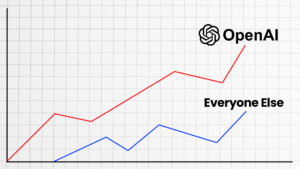In an age marked by rapid technological advancement, AI voice replication stands out as a groundbreaking innovation, sparking both enthusiasm and apprehension. This article delves into the multifaceted landscape of AI voice replication, exploring its potential benefits and the legitimate fears it raises.
AI Voice Replication Impersonating President Biden
In a recent incident that has sparked considerable concern, AI voice replication technology was used to impersonate President Biden, raising significant ethical and security concerns. Malicious actors employed this sophisticated technology to create convincing deepfake audio clips, purporting to be messages from the president, urging voters not to participate in the primary election.
This attempted manipulation of public opinion not only highlights the potential for AI voice replication to be misused for political interference but also underscores the broader risks associated with the proliferation of deepfake content. The ease with which individuals’ voices can be cloned without consent poses a threat to privacy and undermines trust in media and institutions. Furthermore, the incident underscores the urgent need for robust safeguards, ethical guidelines, and regulatory measures to address the growing threat posed by AI voice replication technology. As society grapples with the implications of this technology, it is essential to prioritize responsible innovation and uphold the integrity of democratic processes and public discourse.
The Dark Side of Voice Replication
Fears and Concerns One of the primary apprehensions surrounding AI voice replication revolves around its potential for misuse and manipulation. Recent incidents, such as the attempted voter suppression in New Hampshire, underscore the risks of malicious actors exploiting this technology to spread disinformation or engage in identity theft. Furthermore, the vulnerability of personal and corporate security to deepfake audio clips poses a significant threat to privacy and authentication systems.
The impersonation of public figures, such as politicians or celebrities, using AI-generated voices can have far-reaching consequences, undermining trust in media and institutions. Additionally, the ease with which individuals’ voices can be cloned without consent raises ethical concerns about privacy and consent.
Moreover, the proliferation of deepfake audio clips could exacerbate societal divisions and contribute to the spread of misinformation. In an era where trust in information is already precarious, the ability to manipulate voices with AI technology further complicates the landscape of truth and authenticity.
Unlocking Potential: Advantages and Opportunities
Despite legitimate concerns, AI voice replication offers a wealth of potential benefits to society. From revolutionizing digital assistants and avatars to enhancing entertainment and educational content, the technology has the power to streamline tasks, improve accessibility, and enrich cultural experiences.
Voice-enabled technologies have the potential to revolutionize various domains, from customer service to healthcare. By providing more natural and intuitive interactions, AI-generated voices can enhance user experiences and accessibility for individuals with disabilities.
Moreover, AI voice replication holds promise for preserving endangered languages and dialects, safeguarding linguistic heritage for future generations. By digitizing and replicating native speakers’ voices, linguists and language preservationists can document and transmit invaluable cultural knowledge.
Navigating the Ethical Landscape As we navigate the ethical complexities of AI voice replication, it’s crucial to prioritize privacy safeguards, regulatory frameworks, and responsible deployment. Ethical considerations must guide the development and use of this technology, ensuring that it aligns with societal values and respects individual rights.
Interdisciplinary collaboration among technologists, ethicists, policymakers, and civil society is essential to address the multifaceted challenges posed by AI voice replication. By fostering dialogue and collaboration, we can develop ethical guidelines and best practices to mitigate potential harms and ensure responsible innovation.
Conclusion: Striking a Balance
AI voice replication represents a double-edged sword, offering both promise and peril for society. By acknowledging the legitimate fears while embracing the transformative potential, we can navigate this technological frontier with caution and responsibility.
Through careful consideration, ethical oversight, and collaborative efforts, we can harness the benefits of AI voice replication while mitigating its risks, fostering a future where innovation coexists with integrity and accountability. As we continue to explore the possibilities of AI voice replication, let us remain vigilant in safeguarding privacy, preserving authenticity, and upholding ethical standards.
Want to make the most of technology in your business? Contact Epimax and follow us on social media today.














